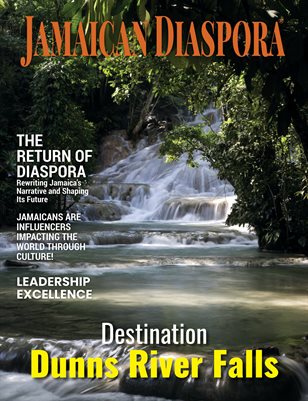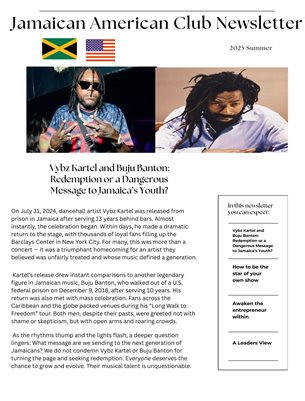
By Winston Walker
I have always thought that coming from a colony has probably made a lot of us culturally richer than we care to believe and the economical racism that many of us face from a visible minority today, can be traced right back to the attitude and ideals of our old colonial masters. When we were in our own country we were made to feel very much like second class citizens so why should we be made to feel any different in the country of our masters? My grandmother was a very God-fearing woman who went to church from a very early age and thought it was very important to hold on to her religious beliefs when she moved to England.
My Grandmother had worked in nursing in Jamaica and went to church every Sunday, a tradition for most people from the Caribbean that they have tried to maintain. So what a joy when she discovered that there was a church just down the road from the room that she had rented. She put on her best clothes and made sure that she had money for the collection. While in the service she felt that she stood out as she was the only black face in the congregation, but she did enjoy fact she was still holding onto the values that she had in Jamaica. The service only lasted an hour and when it finished she sat down, hoping that someone would come and talk to her as she was still feeling very isolated and was in urgent need of making friends. Suddenly she heard a voice behind her saying, “hello, we have never seen you here before”, she also sensed a little intimidation in the voice. She looked behind her and noticed it was the priest who had been giving the sermon, she felt reassured by this and the sight of the man in the black robe made her feel very comfortable, but all that was to change.
The priest asked if he could sit down and have a chat with her and she said that was fine. “Thank you for coming”, the priest said, “but my parishioners are not comfortable in the presence of black people, so if you don’t mind please don’t come back to this church.” At that moment she just wanted to get on a plane and go back to Jamaica. My Grandmother would never express her views vocally and she would not have done so on this occasion, but this would be a story she would tell myself and the rest of our friends and family many times. This experience was also to make her a very bitter woman, but she would not be the only one who would have these experiences, and in years to come there would be a generation who would not tolerate these prejudices and many would lose there lives or find themselves imprisoned fighting for the right to be treated the same as their fellow human beings.
We often confine stories like my Grandmothers to Bible belt America or Apartheid South Africa, although racism was not as harsh in Britain as it was in these places for a lot of people from visible minorities. In Britain a lot of these people would embrace the ideals of such black leaders Nelson Mandela, Malcolm X and Martin Luther King. Although I do believe in non-violence, I would have believed in the Ideals of Malcolm X as I believe that we all have a right to defend ourselves by any means necessary. I do not believe in the saying that we should turn the other cheek, it does not make sense.
When I was 16 I began taking an interest in these people and also the general history of the many black people who were born in the Western world and I came to discover that we are a people who have no name, no religion no culture and no identity. I remember talking to a Rastafarian friend many years ago and him asking me my name and replying “Winston Walker” “No” he said, “that is your masters’ name”. I didn’t understand it then, but I would get to know what he was talking about in years to come and would embrace these values as I tried to find something I could identify with in life.
Although I would deny that I am racist, I do believe that racism has dictated the lives of many black people in Britain, whether it be through housing, education, social welfare, judicial issues or employment etc. I have always asked myself, why is it that when we - people of a visible minority want anything to maintain that certain level of integrity within our cultures - we always seem to find ourselves going to areas that look like they have not been developed since the second world war?
The area I grew up in reflects the economical racism that many of us experienced and are still experiencing today. A few years ago I looked on the internet and was looking at the area that I grew up in Birmingham. I was to discover that many years before, people of a visible minority were invited over here to live. These areas were very suburban, exclusive areas, so why, when these people moved to these areas, were they never developed? I think it would be fair to say the same about many places where people of these minorities decided to settle in Britain.
Throughout the 70s and early 80s these problems were highlighted only through frustration that led to riots in many British inner cities where people were getting a little sick and tired of living in these atrocious conditions and also by the way many were being treated by the law and the judicial system. If you were black you were more likely to have some form of social stigma attached to you, whether it be a criminal record or mental illness, or there was always that expectation that if you were black you were expected to have some form of negativity attached to you, you could be a drug dealer, mugger or thief etc. There are certain elements of people within white middle class Britain, who will always find it hard to accept that all black people are not drug dealers or robbers or thieves, and these people, I do feel, need educating.
At the beginning of my story, I referred to myself coming from a colony. I do think there is a lot of ignorance from the nations who ran these colonies, as being the servant we knew everything about our masters, but at the same time our masters knew nothing about their servants, in that sense the servants have become richer than their masters. Whereas in our home countries we were taught everything about the British Empire it also amazes me that we were never taught anything about our cultures. Whatever I learned was taught by my parents, so does this mean that although we live in multi-cultural society that one culture is more important than the other? I say that we need to embrace each other’s cultures and learn something from each other.
While living in Scotland I often saw a lot of weariness when it comes to the English, but that same weariness, I would say, is the same weariness that people of a visible minority have experienced with whites for many years, hence referring back to the story of my grandmother. I personally am not looking for sympathy or pity, but understanding and to be able to share what I have to offer. Am I happy with race relations in Britain? The answered would have to be yes, but there is always room for improvement. Things have changed since my Grandmother came to Britain, but I also think that these situations must never be forgotten, so that they cannot be repeated.
Within the United Kingdom there are four different countries, England, Ireland, Scotland and Wales. I always ask myself in which category do we people of a visible minority fit in. I personally do not want anything to do with any of these, to be part of one would be separatism, but I would prefer to be part of something that is British as I see a whole multitude of people included in the term of being British. We have Scottish, Welsh, Irish and English and I would also include people from the Caribbean, Africa, Asia, etc. In my eyes that’s what makes Britain great.










